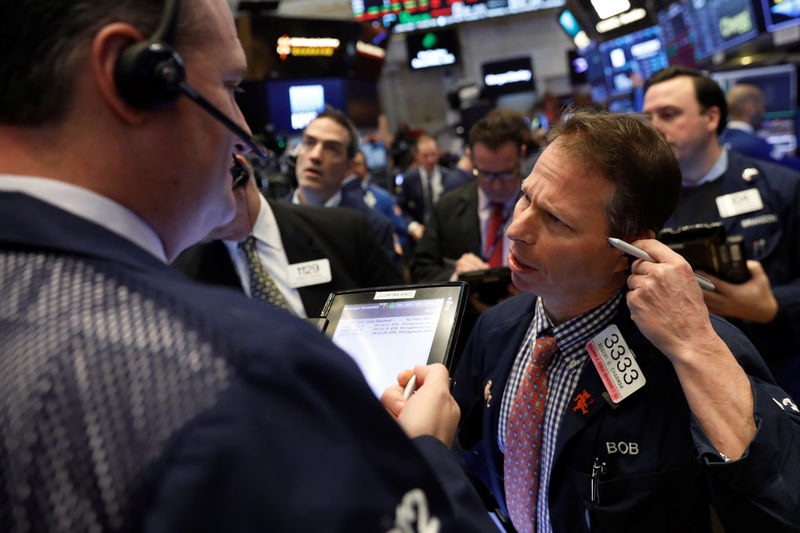By Rushil Dutta
(Reuters) - After a decade of easy-money policy that cut bond yields to almost nothing and lifted U.S. stock markets to records, companies that pay big dividends now look among the most exposed as Federal Reserve interest rate rises pull returns on government debt higher.
A third day of losses for stock markets on Tuesday added to worries over the fate of a stocks bull market stretching back to the global financial crisis of 2008-9.
That has only added to concerns over equity income plays, which targeted high-dividend stocks as an alternative form of "fixed income" to record low-yielding bonds.
The S&P 500 dividend yield has been at around 2 percent for the past nine years, drawing investors looking for dependable returns. For major utilities it has been far higher and currently is about 3.7 percent.
But as 10-year Treasury yields get closer to those levels, the rationale - given the higher risk involved and lower leverage - starts to evaporate.
Utilities (SPLRCU), a bellwether of bond proxies, and its defensive peer the real-estate sector <.SPLRCR>, have fallen nearly 11 percent and 8 percent, respectively, since early September - against a near 8 percent growth in the broader market (SPX).
That corresponds with the moment U.S. Treasury yields began their ascent, with 10-year paper (US10YT=RR) now at about 2.7 percent after hitting a four-year high following strong U.S. jobs data last week.
"Given that for a long time the dividend yield on the S&P 500 was higher than the 10-year treasury yield, investors had gravitated from bonds to equities and their income," said Jack Ablin, Chief Investment Officer at Chicago-based BMO Private Bank.
"That is no longer the case. The higher yields go, the more competition there will be for equity income investing."
(To view a graphic on bond yields and dividend, click http://reut.rs/2BGVoKq)
BLOATED VALUATIONS
Not all dividend plays are equal, however.
The Schwab U.S. Dividend Equity ETF (K:SCHD), one of the biggest exchange traded funds providing exposure to dividend "aristocrats" – stocks which have 25-year histories of annual dividend raises – is up about 9 percent, outperforming the broader market slightly.
The top 10 holdings in the Schwab ETF, constituting nearly 44 percent, range from technology heavyweights like Intel Corp (O:INTC) and Microsoft (O:MSFT) to Verizon (N:VZ) and Coca-Cola Co (N:KO), among other Dow 30 members.
The PowerShares International Dividend Achievers Portfolio ETF (O:PID) - which tends to include companies with shorter, 10-year histories of raising payouts - for comparison is up just 1.1 percent in the same period.
Telecom stocks have also fared better than their defensive peers, rising 5 percent, helped by a trailing price-to-earnings (P/E) multiple of 7.45 that is at the bottom end of its historical range and much cheaper than the broader market.
By contrast, the utility sector's price-to-earnings ratio of 18 has been bloated by another year of stellar gains for Wall Street, trimmed only slightly by three days of dramatic falls.
"Those of higher valuation have more vulnerability to the downside as yields continue to tick up," said Jason Ware, Chief Investment Officer at Utah-based Albion Financial Group.
"There are spots in the utility market; (stocks that are) trading at 18 to 21 (price-to-earnings), where they ought to be trading at 13 to 14."
Ratings agency Fitch last month said that many regulated utilities companies would also have to reduce how much they charge customers to reflect new tax rates.
That coupled with a deferred tax charge stemming from December's new tax bill is expected to squeeze credit in the capital-intensive sector, the agency said.
"After several false alarms 2018 finally might be the year where we move (interest rates) beyond 'Lower for Longer' and back towards more of an 'Old Normal'," Deutsche Bank (DE:DBKGn) analysts said in a recent note.

"To the extent that involves higher yields, chances are it would also bring back lower utility stock valuations."